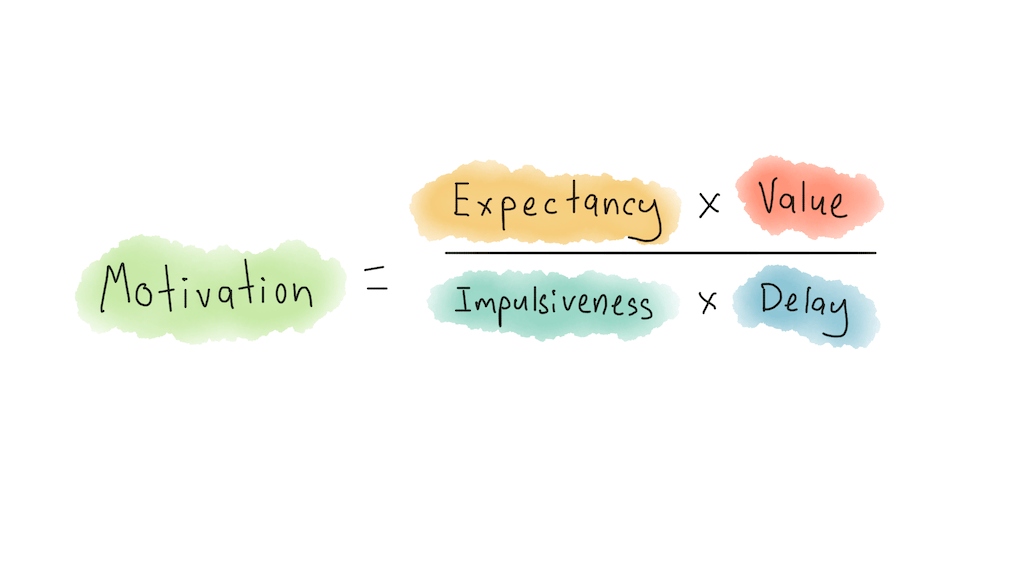We all procrastinate on things we know we should do.
We’ll reorganize our desk instead of writing that email. Research productivity apps instead of working. Clean the kitchen instead of tackling that side project we’ve been talking about for months.
Then we feel terrible about it and promise tomorrow will be different.
Tomorrow is usually the same story.
If this sounds familiar, as I’m sure it might, you struggle with procrastination.
But what you might not know is that procrastination is not a character flaw—it’s your brain trying to protect you.
It’s just using a strategy designed for avoiding saber-tooth tigers, not difficult conversations with your boss.
The Procrastination Trap
Here’s what’s happening when you procrastinate:
You think about the task → feel stressed or overwhelmed → avoid it → feel a small sense of relief → feel guilt or shame for not doing the task → makes the task feel even more threatening → leads to more avoidance.
It’s a feedback loop that gets stronger every time you complete the cycle.
Your brain treats that intimidating project like a physical threat. Your amygdala releases adrenaline, triggering fight-or-flight. So you flee to something safer—scrolling social media, cleaning, “researching.”
For a moment, you feel better. Your brain says, “good job, we survived another day.”
But the task doesn’t disappear. It just gets scarier.
It’s a Habit Loop, Not a Character Flaw
Procrastination follows the same pattern as any habit:
Trigger: Stress, overwhelm, or fear when you think about the task
Behavior: Avoidance (scrolling, cleaning, busywork)
Reward: Immediate small relief from stress
Growing up, I fell into this constantly. I either needed the pressure from a deadline to get moving, or I’d simply forget about tasks because it didn’t feel important enough to remember.
When something felt above my ability, my mind would race, my body would get warm, and I’d shut it down by finding something else to do.
My turning point came in college when I discovered time blocking. At the beginning of each week, I’d write out my projects and estimate how long they’d take. I’d schedule 1-2 hour blocks throughout the week to chip away at them. By the day before the deadline, I’d already have 80% of the task completed.
This eliminated procrastination because it eliminated the overwhelming nature of tackling a big task. If you’re someone who gets paralyzed by big projects, this might be exactly what you need.
But there’s an even deeper pattern at work here.
There's a formula that determines whether you’ll procrastinate or take action:

Motivation = (Expectancy × Value) / (Impulsiveness × Delay)
Expectancy: Belief in one’s likelihood of success
Value: Perceived reward or importance of the outcome
Delay: Time until reward is realized
Impulsiveness: Trait sensitivity to immediate rewards and aversion to delay
When motivation drops below the energy required to start the task, procrastination kicks in.
Think about the last time you avoided something important. You probably either:
Didn’t believe you could do it well (low expectancy)
Didn’t see why it mattered (low value)
We’re distracted by more immediate pleasures (high impulsiveness)
Felt like the payoff was too far away (high delay)
The beautiful thing about this formula is that it shows you exactly how to fight back.
Four Ways to Hack Your Motivation
1) Boost Expectancy (Build Your Confidence)
Your brain needs evidence that you can succeed.
When I’m avoiding a project because it feels above my ability, I remind myself of similar challenges I’ve overcome before. Sometimes I’ll write them down. Your brain needs proof, not pep talks.
2) Raise Value (Make It Matter)
Reframe the task in terms of your bigger goals. Instead of “I have to write this report,” try “This report showcases my expertise and moves me closer to the role I want.”
You can also introduce immediate rewards. After completing difficult tasks, I’ll do something small I enjoy. It trains your brain to associate challenging work with positive outcomes.
3) Reduce Delay (Bring the Reward Closer)
Break massive projects into micro-goals with mini-deadlines. Instead of “write the business plan,” try “outline the executive summary by Thursday.”
This is where time blocking shines. When you schedule specific work sessions throughout the week, progress feels immediate rather than distant.
4) Manage Impulsiveness (Control Your Environment)
Remove distractions before you start. Phone in another room. Unnecessary tabs closed. Timers for artificial urgency.
Your environment needs to make the right choice easier than the wrong choice.
When Procrastination Actually Works
Here’s something most productivity advice gets wrong: sometimes, procrastination is the right strategy.
It’s called “active procrastination”—deliberately delaying a task to leverage deadline-induced urgency and focus.
For certain creative projects requiring deep work, I’ll purposely wait until a specific night (not too close to the deadline) where I can work uninterrupted for hours. The time pressure creates a dopamine surge that boosts concentration and creative insight.
You might find this works for you too if you’re someone who does their best work under pressure.
This only works when:
The task benefits from intense, uninterrupted focus
You have a firm, non-negotiable deadline
You’re confident in your ability to execute under pressure
The key is intention. Active procrastination is strategic. Regular procrastination is just avoidance.
Breaking the Cycle
When you catch yourself procrastinating, try this:
1) Acknowledge the stress you’re feeling about the task (If you need help managing that stress response, check out my newsletter on how Navy SEALs handle stress)
2) Count down from 5 (5-4-3-2-1) to interrupt the avoidance pattern
3) Do just one small thing for 5 minutes. Just start the task for 5 minutes, see how it feels.
4) Be kind to yourself if you slip back into old patterns
You’re rewiring a habit loop that’s been reinforced for years. It takes time. Give yourself grace.
Here’s something I’ve learned: I have never once felt better in the long run from procrastinating versus getting something done early. Not once.
That temporary relief always gives way to increased stress, rushed work, and diminished self-confidence.
Stop Procrastinating on Your Life
We don’t just procrastinate on tasks. We procrastinate on life itself.
We tell ourselves we’ll start that business “when the timing is better.” Travel “when we have more money.” Pursue that relationship “when we feel more confident.”
The timing will never be perfect. There will always be reasons to wait.
The same brain patterns that keep you from starting that presentation are keeping you from starting the life you want.
Your future self isn’t going to be a different person with different constraints. The obstacles you’re avoiding today will still be there tomorrow, except now you’ll have less time to overcome them.
Start Here
Procrastination isn’t a personality trait you’re stuck with. It’s a learned response to stress that you can unlearn.
Pick one thing you’ve been avoiding and apply the formula:
Boost your expectancy by connecting it to past successes
Raise the value by linking it to something you care about
Reduce delay by breaking it into smaller pieces
Manage impulsiveness by removing distractions
Then just begin. Not perfectly. Not when you’re ready. Just begin.
Your future self will thank you.
Be well,
—Johnathan







